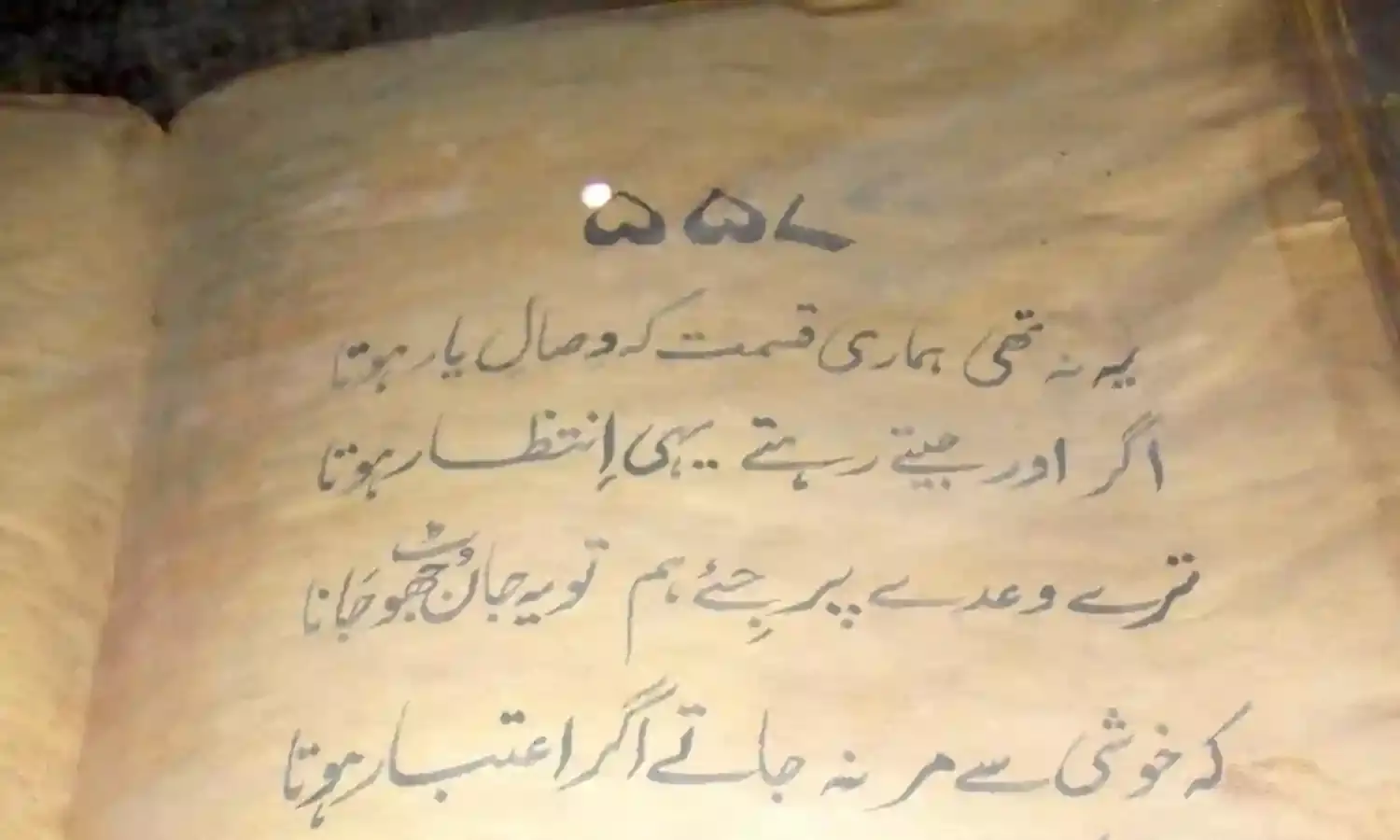‘I Have Searched For and Found the Answers to Most of my Problems in Books’
A visit with the tall and stooping Lakshman Chaudhary
Recently I accompanied an elderly friend of mine Lakshman Chaudhary to a bookstore. He is nephew of one of the most celebrated writers of the subcontinent, Munshi Premchand (Dhanpat Rai) and was also co-star of legendary Guru Dutt in films like Sautela Bhai.
An ardent reader himself, the tall and stooping Lakshman Chaudhary has a special affinity for literature and art. I call on him at his book-lined study whenever I am groping for the right verse for my writings. He knows the works of many poets by rote. You have to just present a reference to a verse and he will embark on a long recitation with his beatific smile.
The octogenarian Lakshman ji has still not lost his verve for reading, and reserves his Saturday evenings for a visit to the bookstore. On that day too at a well known old bookstore in Allahabad, he enquired about the availability of Ghalib’s diwan (collected works) printed in large readable letters.
Having known each other for a long time, the portly bookstore owner wrung his hands sometime and asked, “Chaudhary sahab! Would you mind if I say something?”
Lakshman ji who usually takes things in stride, has a quick mind and a splendid gift for repartee. Digging his hands into the deep pockets of his white kurta, he affably told him not to hesitate, besides reciting loudly:
ai Zauq takalluf mein hai taklif sarasar
aram mein hain vo jo takalluf nahi karte
Formalities contain all pain, Zauq,
and those who eschew them are at their ease!
Choosing his words carefully the storekeeper replied, “Chaudhary sahab, you are of considerable age now. Don’t you think you should spend more time remembering god? Still you are trapped in the affairs of Ghalib and Firaq!”
My scowl preceded Lakshman ji’s vivacious recitation of an apt couplet from Akbar Allahabadi:
rahta hai ibadat mein humen maut ka khatra
hum yaad-e khuda karte hain, kar le na khuda yaad
In worship remains the fear of death to me
I remember god so he should not remember me.
“I do remember God but not much. God is engrossed in His important work and I do not wish to disturb Him too much. That’s why I prefer to read books from the best writers and poets God himself has produced,” Lakshman ji concluded.
The bookstore keeper yelled with laughter at this endearing reply, and instructed his boy to bring a Diwan-e Ghalib published in bigger font size from the interior shelf for Chaudhary sahab.
On the way back, Lakshman ji carried on with excitement recounting how books have affected him more than anything else in his life. “Books and literature satisfy my soul’s hunger. I have received something from every book and I have searched for and found the answers to most of my problems in books. They have proven the best consolation in times of my sadness.”
He continued to ascribe. “In what a beautiful way the poet has given words to our thought about the almighty:
tu dil mein to aata hai
samajh mein nahin aata
bus jaan gaya teri pehchan yahi hai
You come into the heart, but the mind cannot comprehend you
I know now just this is your identity.
Lakshman ji continued, “For this reason any good story, poetry, ghazal or even couplet is a food for our soul. You would notice, they change our deportment and demeanour profusely. There is always something to learn from a redeeming verse or couplet. We often realize that whatever we wanted to convey or the experience we wanted to share, it has already been beautifully expressed by the poet just in a pair of successive lines of any particular verse.
“Indeed, a litterateur tells us that life can be like this and life should have been like that. This is the reason why even after many years of the passing of Shakespeare, Kabir or Ghalib, we find them relevant and enjoy reading them all.
“Unfortunately when people separate literature from their lives, a gap is created and they become victim of despair and depression. I have come to the conclusion that people have to fall in love with literature to endure the ups and downs of life.”
His words reminded me of a wonderful example given by one of my friends and critic Dr Mahmood Kazmi long ago during a book inaugural event by putting a face on the importance of books and literature in our lives.
Agreeing with most of Lakshman ji’s words, I also shared with him the example given by Dr. Kazmi, where he explained very beautifully something like this:
“Taj Mahal, one of the most beautiful buildings ever created, is now emphatically of no use to us. But still we go to see Taj Mahal by spending our money and taking the pain of a long journey. After all, why do we do this, what do we get from seeing the Taj Mahal?
“Obviously the answer is, the wonderful love of Shah Jahan and Mumtaz Mahel, a commitment of that love, a tragedy and lastly the beauty of that marble structure—all these things together make that edifying sight a masterpiece of art.
“And eventually we become awestruck to see that wonder. Therefore, along with technology and science, fine arts and literature should also have equal importance in any good society.”
Lakshman ji was amused with the simile, by which I was advocating for what he had just said. By now it was a quarter to eight, and I dropped him off home and bid him goodnight.





